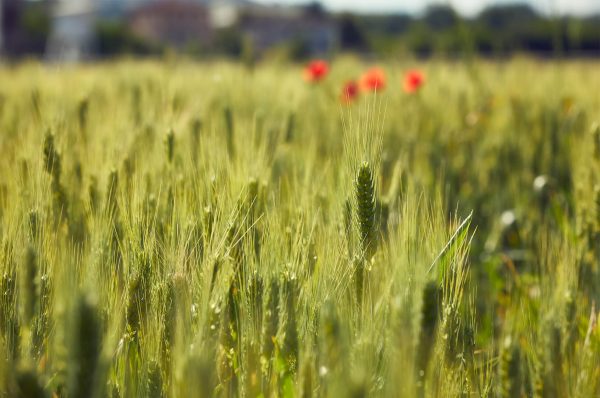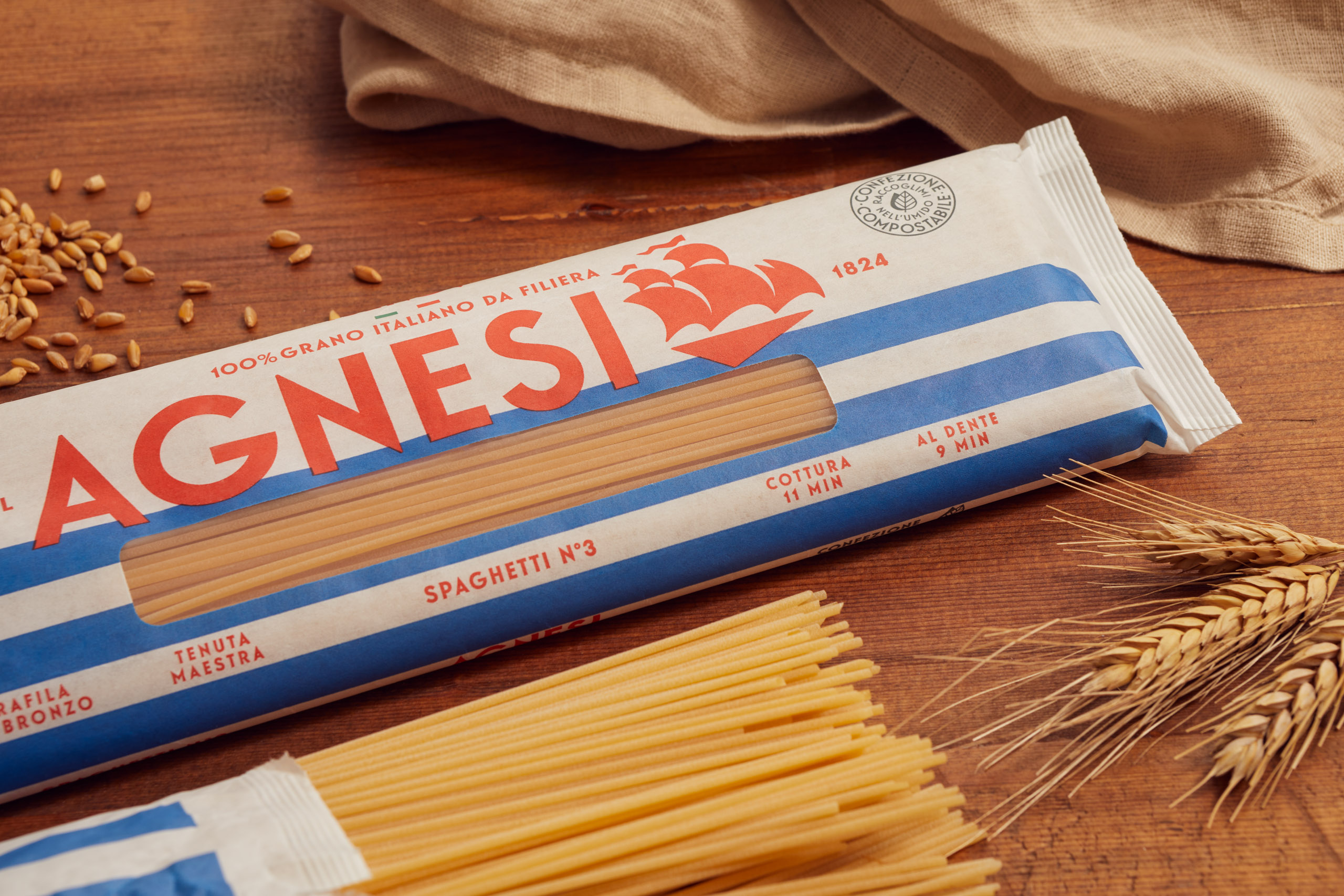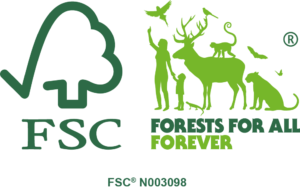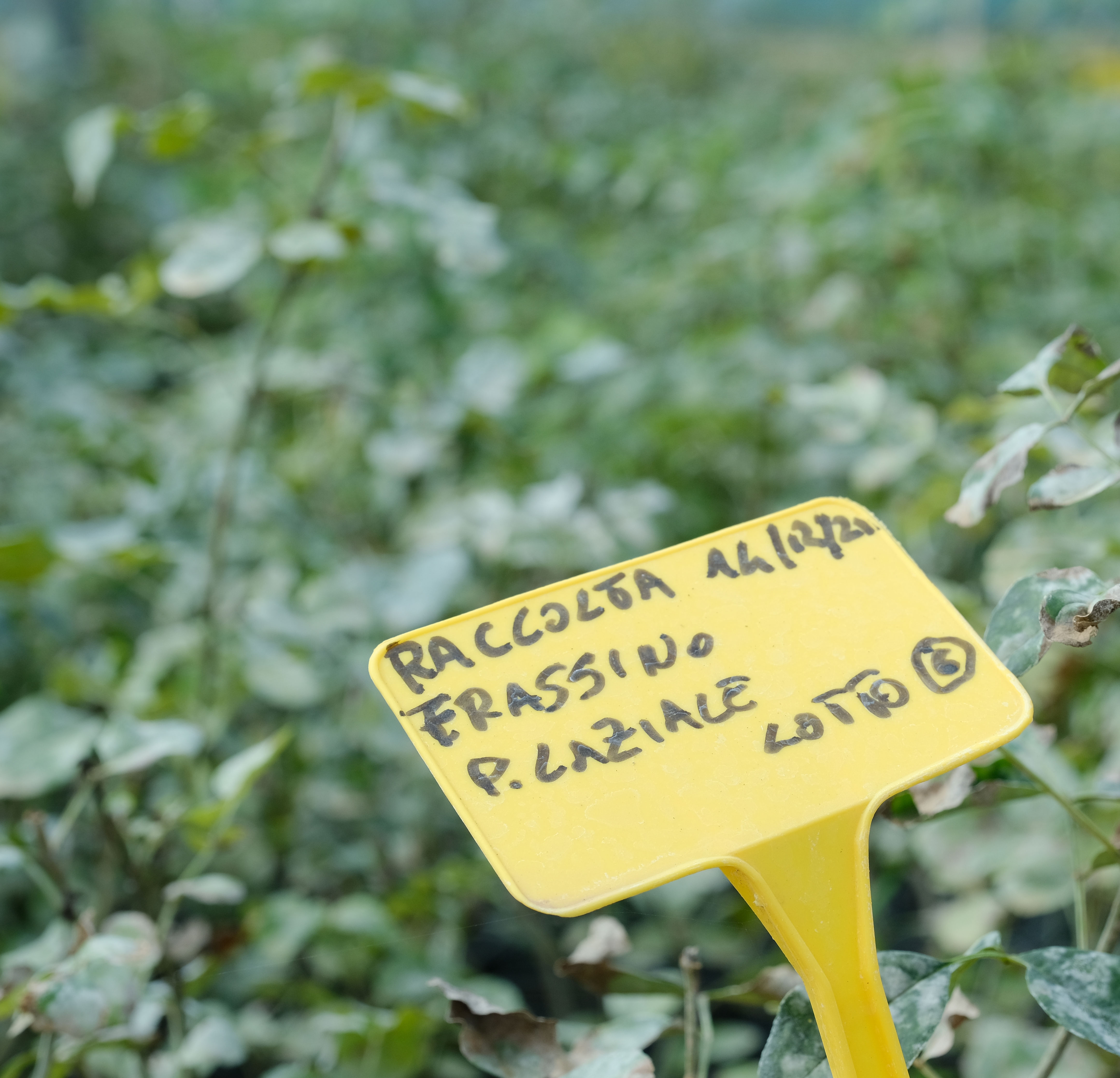
Our approach
to sustainability
Our approach
to sustainability
Ranking the most essential things humans need to survive is no mean feat. But food would definitely be near the top, close to the air we breathe and the water we drink. A third of all gas emissions threatening the Earth’s climate today derive from the agroindustrial sector. The agrofood industry has a big responsibility and rethinking the way we currently produce food could really make the difference required to change our future for the better. Companies like Colussi, with over 200 years of history under their belts, know only too well that urgent, drastic action is needed. This is why we have decided to make a contribution to sustainable development by choosing the road of innovation. A kind of innovation not only conceived in terms of product and technological efficiency, but also as social innovation, capable of changing people’s behaviours, habits, lifestyles and consumptions. Changing our current production and consumption models to build a kind of development aligned with the ecosystem and our communities. We work on managing agricultural supply chains that experiment with sustainable practices in the field, on the eco-design of packaging, and on continuously improving the nutritional profile of our products. We use electricity from renewable sources in our production facilities and offset any remaining emissions. To put it briefly, over the last few years we have embarked upon a pathway that is gradually requiring greater commitment on our part, but at the same time becoming more satisfying , for us, our consumers, and the environment.
To help contribute, through nutrition, to a more balanced, sustainable future.

An agreement for Sustainable Agriculture with Controlled Supply Chains

An agreement for Sustainable Agriculture with Controlled Supply Chains
The Colussi Group has developed a controlled supply chain model for wheat cultivation — the main raw material used in many products.
This integrated agricultural supply chain, spanning the entire Italian territory, involves a network of local partners to ensure premium raw materials, minimize ecological impacts, and support farmers in adopting sustainable practices. This model guarantees the quality and safety of the product, which is tracked and monitored from the cultivation stage, while also promoting skills development, innovation, and research.
In 2024, our supply chain covered 6,977 hectares of wheat crops, up by 1,963 hectares compared to 2023.

We initially launched a supply chain project in the Umbrian region by signing cultivation contracts with local farms, asking them to adhere to a sustainable cultivation protocol aimed at producing excellent and environmentally friendly products.
The Umbrian supply chain project, conducted in close collaboration with the University of Perugia, involves experiments on the best wheat varieties and sustainable farming practices.
The supply chain model was subsequently extended nationwide, covering a total of 5,014 hectares in 2023, an increase of 250 hectares compared to 2022.
Download the Rural Development Programme for Umbria.
P.S.R Umbria
The Group has also launched its agriculture 4.0 pilot project. which aims to improve the sustainability of current cereal grain production protocols thanks to the use of digital systems to support agronomic decisions. Thanks to different technologies and analysis models, the farmer is able to have precise indications on the specific practices to be adopted.
Innovative Packaging and Plastic Reduction

Innovative Packaging and Plastic Reduction
Colussi Group is dedicated to optimizing packaging, enhancing its recyclability, utilizing renewable and recycled resources, and developing innovative solutions.
Today, 99% of the packaging we use is designed to be recyclable at the end of its life. Whenever possible, for packaging that does not come into direct contact with food, we prioritize the use of recycled paper. In 2024, 68% of all the paper we used came from recycled sources.

The Group has been replacing plastic packaging with paper and in 2024 this resulted in 195 fewer tons of plastic packaging compared to 2022. The Group has prioritized the use of paper sourced from sustainably managed forests, certified by the Forest Stewardship Council (FSC). In 2024, 91% of the primary paper packaging used by the Group’s main brands was FSC certified.

Colussi was also the first food company to choose compostable packaging for some of its shelf-stable products — wrappers designed to be disposed of in the organic waste bin, where, after industrial composting, they are transformed into fertile soil.
LCA Analysis

LCA Analysis
With the aim of reducing our environmental impact, since 2021, we have analyzed the environmental performance of our products through LCA (life-cycle assessment), an internationally standardized method that quantifies the environmental impacts of a product throughout all phases of its life cycle, from raw material acquisition to post-consumer disposal.
The results provide a detailed view of the impact across various indicators – including CO2 emissions, energy resource usage, water scarcity, and waste production – and offer valuable support for improving processes and products.
A total of 52 product references have been evaluated up to 2024.
Sustainable Energy to Combat Climate Change

Sustainable Energy to Combat Climate Change
We have implemented significant energy efficiency measures in our facilities, investing in the replacement of two major production lines at Petrignano d’Assisi, the Group’s largest plant in terms of production capacity and energy consumption, with high-efficiency innovative technologies. From 2018, this commitment has allowed us to reduce the amount of energy used per ton of product by 10% and direct emissions generated by 13% per tonne of product.

Additionally, 100% of the electricity used in our facilities comes from renewable sources.
All direct emissions that we cannot eliminate through energy efficiency measures are offset through specific CO2 compensation projects.
Against Waste

Against Waste

In the fight against food waste and in support of the social fabric, Colussi consistently collaborates with Banco Alimentare to reduce food waste and provide assistance to those in need. In 2024, we delivered 5.2 million portions to Banco Alimentare.
Misura for the Appennino bike route, connecting Italy

Misura for the Appennino bike route, connecting Italy
With the aim of promoting sustainable tourism and transportation, raising awareness about a wellness-oriented lifestyle, and enhancing the inland areas of the country, Misura has chosen to contribute to the enhancement of the Appennino bike route, the largest bike route in our country. This route spans over 3,000 kilometers, crossing 14 regions from Liguria to Sicily, more than 300 municipalities, and 26 parks and protected areas.

Misura has equipped the 44 municipalities along the route with stopover locations and cycle repair stations, columns equipped with all necessary tools for emergency maintenance and charging stations for e-bikes.
Misura also created the CicloAPPennino app, a comprehensive guide for cycle tourists, providing information on over 300 points of interest along the route.
In 2023, Misura renewed its commitment by launching CicloAppennina, the first amateur cycle tourism race along part of the Appennino bike route. This is the first race ever held in Italy that symbolically links the kilometers covered by participants to the production of trees for reforesting the country. The project has thus contributed to the reforestation of the country with native species, ensuring biodiversity and more resilient plants to cope with climate change.
In 2024, Misura continued its support by installing 12 additional bike and e-bike charging and maintenance stations along the longest sections of the route — those exceeding 80 km.
Reforestation to Help Cities and Climate

Reforestation to Help Cities and Climate
In 2020, Misura funded 10 reforestation projects from North to South across 9 regions to green, restore, and support Italy: in Turin, Milan, Pordenone, Sant’Arcangelo di Romagna, Palo Laziale, Rome, the Vesuvius National Park, the Gargano National Park, and the Matera badlands. We selected areas that closely align with the needs of local communities, often in large and medium-sized towns, to create a significant network of territorial regeneration across the peninsula. In total, 13,400 trees were planted, absorbing 9,380 tons of CO2 over their lifetime.
It is a commitment that does not end when they are planted: they are effective and lasting projects, which will be supported and managed in the coming years, capable of lasting over time. A small helping hand against the climate crisis.

In 2023, the brand continues its commitment with the “Boschi del Futuro” project, which involves establishing 3 open-field nurseries for the community to produce trees for future years. This project addresses the need to reduce pollution, combat hydrogeological instability, and restore landscapes through the use of native seeds with rich genetic diversity, ensuring more resilient plants to cope with climate change.
The three locations involved are: Mogliano Veneto (Treviso), Palena (Chieti), and Terelle (Frosinone), where seeds collected from nature were used to create the forests. These seeds have been germinated, and the seedlings planted will continue to produce seeds and trees for years to come.
Colussi Initiatives to Raise Awareness Among Young People

Colussi Initiatives to Raise Awareness Among Young People
In 2022, we launched “La Casa dei Fiori Colussi,” a new environmental initiative that established gardens in three Italian cities—Milan, Rome, and Bologna—to foster biodiversity and restore green areas. With the participation of 300 students from seven primary and secondary schools, accompanied by their teachers, oases were created with trees, shrubs, and plants such as brooms, lavender, strawberry trees, and myrtle, selected to attract and protect various pollinator species: bees, butterflies, and bumblebees. Each “House of Flowers” was inaugurated during a public event attended by students, teachers, local associations, and institutions.

In 2023, to raise awareness among young people about the importance of water and its precious nature, Colussi promoted the AcquAmica project—a contest inviting secondary school students to capture the theme of water through photography.
Over 300 photos were submitted from across Italy, and more than 18,000 votes, which allowed to select the top 10 photos. An expert jury chose the winners. The top three classes received a library with essential environmental titles, while the winning class enjoyed a reading performance on the theme of water by two well-known figures among the younger audience.
Agnesi Mare Libero

Agnesi Mare Libero
Aware that an incalculable number of fishing nets are abandoned in the Mediterranean every day, posing enormous risks to the marine and underwater environment, Agnesi launched “Operazione Mare Libero“. This project involves recovering fishing nets in a section of the sea that is part of both the UNESCO MAB Biosphere Reserve “Isole di Toscana” and the International Sanctuary for the Protection of Marine Mammals “Pelagos.” Established in 1999, this international zone protects 87,500 square kilometers of the Mediterranean, crucial for the conservation of these specially protected species

The project targets nets used for fishing, as well as hooks and lines, which have long-term impacts by releasing microplastics and lead, and pose physical dangers to marine life. Thanks to the operation organized by Agnesi, in collaboration with the National Park of the Tuscan Archipelago, over a kilometer of fishing gear has been recovered from the seabed.
Gender Equality

Gender Equality
In 2024, Colussi strengthened its commitment to diversity and inclusion through dedicated activities and obtained certification in compliance with the UNI PdR 125 reference practice for gender equality. Issued on a voluntary basis through verification by an accredited third-party body, the gender equality certification represents an important recognition of the company’s commitment to promoting equal opportunities and creating an inclusive and respectful work environment.

The Colussi Group reports, in compliance with international standards on sustainability reporting, the results achieved and future objectives. The Sustainability Report abstract is a transparent and shared account of our identity, of the contribution to economic and social development, of the relationship with the ecosystem and with local communities. A commitment that points the way towards the future we want.
Nuovo Download the 2024 sustainability report abstract
2024 sustainability report abstract
Download the older sustainability report abstract
2023 sustainability report abstract
2022 sustainability report abstract
2021 sustainability report abstract
2020 sustainability report abstract
2019 sustainability report abstract